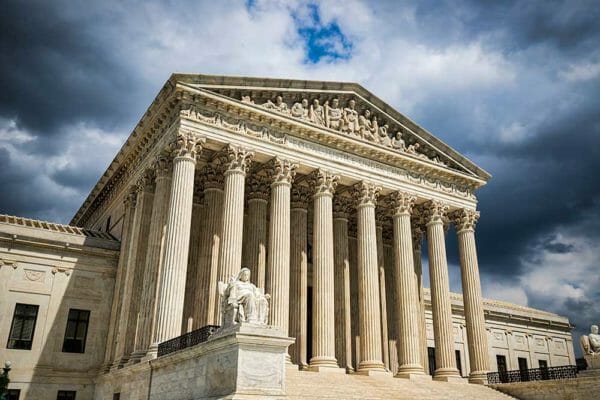
In recent developments, Hunter Biden, the son of President Joe Biden, may find solace in the Supreme Court’s conservative wing due to their approach to Second Amendment cases. The crux of this assertion lies in the court’s newly instituted “history-and-tradition” test, which has the potential to influence Biden’s legal situation.
The “history-and-tradition” test, introduced last year in New York Rifle and Pistol Association v. Bruen, has made it more difficult for both Congress and state legislatures to introduce and maintain restrictions on gun ownership. This decision drew criticism from several quarters, including President Joe Biden, who expressed deep disappointment. However, this ruling might give Hunter Biden a reprieve in his current legal predicament.
To delve into specifics, the Justice Department recently charged Hunter Biden with three counts of federal gun law violations. These counts relate to allegations of illegal firearm possession while under the influence of an illicit substance and purported false statements about his drug use during a 2018 firearm purchase.
This situation calls to mind a major case from over a decade ago, District of Columbia v. Heller, where the justices held that the Second Amendment enshrines an individual’s right to bear arms. A subsequent case, McDonald v. Chicago, expanded this interpretation to encompass state and local governments.
The Bruen case further built upon these foundations by implementing a stricter test for lower courts to decide the constitutionality of gun laws. Under this test, it is presumptively protected if the Second Amendment covers an individual’s conduct. The government then must demonstrate that its regulation aligns with the nation’s historical firearm regulation tradition. This shift has led to the overturning of dozens of longstanding gun laws by lower courts.
Hunter Biden’s charges revolve around Section 922(g)(3) which prohibits firearm possession by those unlawfully using controlled substances.
Given that drug use was not criminalized until the late 19th and early 20th centuries, post-Bruen interpretations might deem this section unconstitutional.
A notable case reflecting this interpretation is United States v. Daniels, wherein the Fifth Circuit Court of Appeals ruled that the conviction under 922(g)(3) failed the Bruen test, thus violating the Second Amendment.
However, the interpretation is not unanimous across federal courts. For instance, a recent ruling by a federal judge in Iowa opted not to adopt the Fifth Circuit’s view, emphasizing the generality of Section 922(g)(3) in regulating “unlawful users and addicts of any controlled substance.”
This divisive landscape hints at possible intervention by the Supreme Court in the future, especially with an upcoming case, United States v. Rahimi, which could further define the Bruen test.
Separately, a no-compromise perspective from AmmoLand News’ John Crump emphasizes the importance of the right to bear arms. The Crump discusses Hunter Biden’s plea deal involving a firearm possession charge during his alleged addiction to crack cocaine. And underscores the broader implications of regulations like the ATF Form 4473 and drug-related firearm prohibitions, advocating for an unyielding stance on gun rights.
While the Justice Department’s charges against Hunter Biden are clear, the constitutionality of the gun control statute used remains a topic of heated debate. The Bruen ruling’s ripple effects continue to challenge long-established gun control norms, and its impact on Hunter Biden’s case remains to be seen.
Read Related:
-
A No-Compromise Look At Hunter Biden’s Gun Crime
-
TX District Attorney Phil Sorrells, Act Now! Be a 2nd Amendment Superhero
-
Hunter Biden Gun Pleadings Threaten to Derail Joe’s Entire Agenda
from https://ift.tt/g5E8LRC
via IFTTT

No comments:
Post a Comment